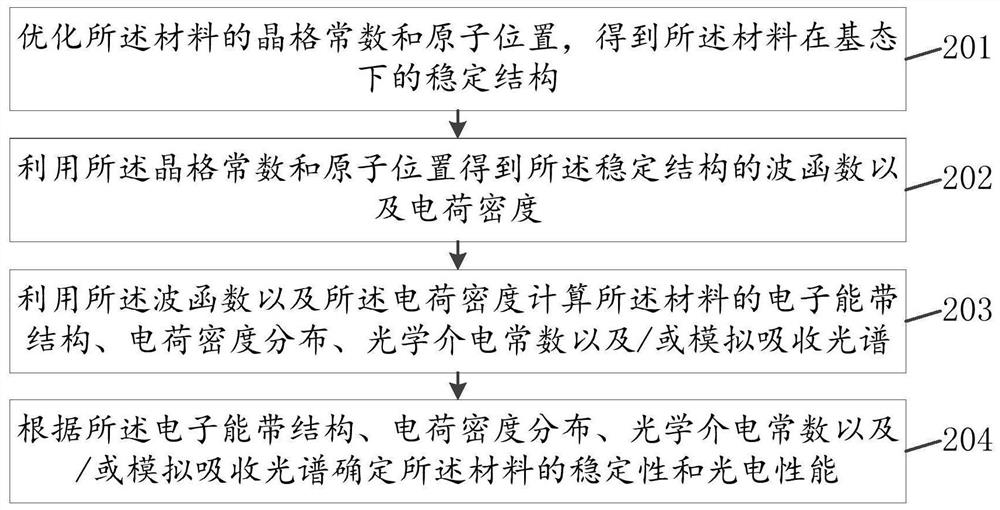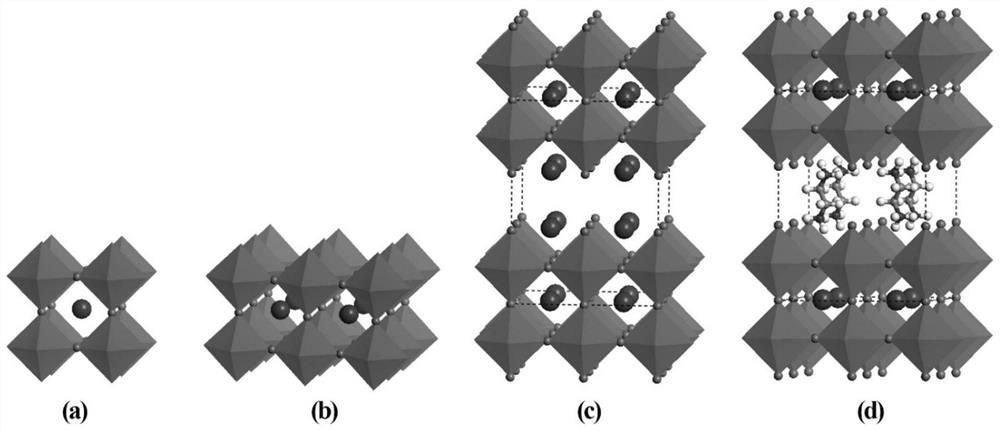Organic Intercalation Methods, Devices, Materials, Test Methods, Applications, and Solar Panels
An organic and intercalation technology, applied in the field of materials, can solve the problems of reducing light absorption capacity, unstable three-dimensional structure, and easy oxidation of elements, so as to improve stability and photoelectric performance, improve photoelectric conversion efficiency, and solve the problem of low stability. low effect
- Summary
- Abstract
- Description
- Claims
- Application Information
AI Technical Summary
Problems solved by technology
Method used
Image
Examples
Embodiment Construction
[0031] Hereinafter, the present invention will be described in detail with reference to the accompanying drawings and in conjunction with embodiments. It should be noted that the embodiments in the present application and the features of the embodiments may be combined with each other in the case of no conflict.
[0032] As in the background art, because the three-dimensional geometric structure of the material is prone to collapse, the structure is unstable, and the phase transition is prone to occur. The band gap gradually increases with the phase transition, which is not conducive to light absorption, and the surface modification method and the internal doping method cannot be based on the above. Solve the problem of unstable 3D geometry of materials.
[0033] In order to solve the above problems, the embodiments of the present invention provide an organic intercalation method, such as figure 1 As shown, the method includes:
[0034] 101. Obtain the three-dimensional geom...
PUM
 Login to View More
Login to View More Abstract
Description
Claims
Application Information
 Login to View More
Login to View More - R&D
- Intellectual Property
- Life Sciences
- Materials
- Tech Scout
- Unparalleled Data Quality
- Higher Quality Content
- 60% Fewer Hallucinations
Browse by: Latest US Patents, China's latest patents, Technical Efficacy Thesaurus, Application Domain, Technology Topic, Popular Technical Reports.
© 2025 PatSnap. All rights reserved.Legal|Privacy policy|Modern Slavery Act Transparency Statement|Sitemap|About US| Contact US: help@patsnap.com



